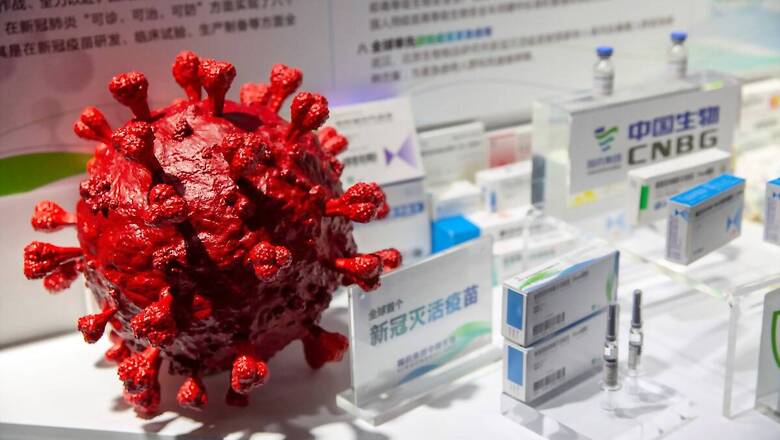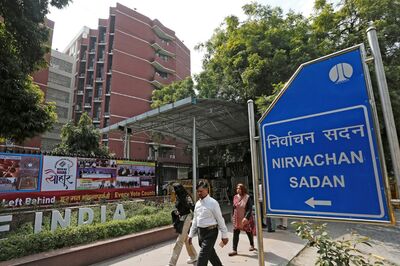India, South Africa Are Seeking to Free Covid-19 Drugs and Vaccines from Patents and IPR. Here’s Why

views
The race to obtain the regulator’s approval for vaccine rollout has entered its last leg in India and the government is firming up plans to immunise 30 crore people of the high-risk group in phase-1.
Amid these developments, India and South Africa, backed by other developing and low-income countries, are pushing for a temporary waiver from patents and intellectual property rights for Covid-19 medicines, vaccines, diagnostics, and technologies. The waiver has been sought from certain provisions of the multilateral TRIPS (Trade-Related Aspects of Intellectual Property Rights) agreement dating back to 1995.
The two countries moved their proposal on the issue on October 2 before the World Trade Organization (WTO) and on Thursday important deliberations will continue before a final call is taken by the General Council of WTO.
What is the proposal India and South Africa have moved?
The proposal seeks a waiver from the implementation of certain sections of the TRIPS agreement which relate to intellectual property rights (IPR), patents, trade secrets, and copyrights in the larger interest of Covid-19, enabling countries to access drugs, vaccines, medical diagnostics, and technologies at affordable rates.
Specifically, the two countries have moved this proposal before the Council for TRIPS and requested it to recommend the proposal to the WTO’s General Council. The TRIPS Agreement was enforced in 1995- a multilateral agreement on intellectual property and governs the standards for protecting and enforcing all forms of IPR. The agreement has a far-reaching bearing on access to medicines, especially in low-income countries and in the developing world.
The proposal stated that the waiver should be in force till a majority of the world’s population develop immunity against the novel coronavirus and until there is widespread inoculation. The proposal also highlighted that IPR was hindering or was potentially hindering timely access to affordable medicines. They also pointed to delays in manufacturing of drugs and vaccines owing to certain provisions of the TRIPS agreement.
The TRIPS Council must consider the application seeking waiver within 90 days and then submit a report to the ministerial conference, which is the highest decision-making body consisting of all WTO members, for a decision.
What did India say during the last meeting on the issu
e?
During the October 16 meeting of the Council for TRIPS, India said that the joint proposal was important for those who had insufficient or no manufacturing capacities of the health products required for combating Covid-19 crisis. It listed out India’s contributions in supplying medical products and equipment required to fight the pandemic and stated that it resisted the attempts by few countries to corner supplies.
Further stated that IPR was a barrier in equitable access to treatments and vaccines and cited the example of lawsuits filed by private companies for infringement of IPR on Covid-19 products and the limitations IPR posed to scaling up production of reagents, test kits and other essential diagnostics.
The Indian delegates also pointed out that the joint proposal specifically sought a waiver from sections pertaining to IPR, patents, copyrights and trade secrets because products such as test kits, masks, medicines, vaccines and ventilator components are covered under them. They also sought to assure that the waiver being sought was for a limited period.
Who is supporting it and who is against it?
India, South Africa, Kenya, and Eswatini are the cosponsors of the proposal. Countries that are fully backing the proposal include Argentina, Bangladesh, Pakistan, Sri Lanka, Tunisia, Venezuela, Egypt, Indonesia, Mali, Mauritius, Mozambique, and Nicaragua. Chad, China, Chile, Colombia, Costa Rica, Ecuador, El Salvador, Jamaica, Africa, Carribean and Pacific countries negotiating group, Nigeria, Philippines, Senegal, Turkey and Thailand have welcomed and supported further discussions on the proposal.
While Australia, Brazil, Canada, European Union, Japan, Norway, Switzerland, the United Kingdom and the United States opposed it. The World Health Organization has backed the proposal and so have over 300 civil society organizations which included among them; MSF, People’s Health Movement and Third World Network.
Have IPR’s hindered treatments during the pandemic and have there been precedents on waivers?
Médecins Sans Frontières (Doctors without borders), the global non-governmental organisation cited the example of how Gilead’s Remdesivir drug, which has been used widely against Coronavirus across the world, has been in short supply in some countries. MSF said that governments have faced IP barriers in the case of Remdesivir and faced shortages of the drug. This was also seen in Indian cities. It said that Gilead signed agreements with selected manufacturers which raised barriers in accessing the drug.
“As far as benefits of a waiver are concerned, if there is a medicine or a product for Covid-19, it can be made using domestic capabilities at lower costs. As far as vaccines are concerned, patents and trade secrets are barriers and governments are bound to follow laws on the issue. Secondly, waivers can also encourage innovation in the absence of patents and enables and expedites the production of low-cost alternatives,” said K M Gopakumar, legal adviser, Third World Network.
In 2001, the Doha Declaration was adopted by WTO Members to fight the crisis of inequitable access to HIV/AIDS medicines in the poorer and developing countries. The declaration enabled countries to relax patent laws for production of generic alternatives to expensive medicines which were essential to fight the battle against HIV/AIDS and malaria. The combination of drugs used against HIV cost $10,000 at one point, which was out of reach of thousands of people. In South Africa, a movement emerged to break monopolies of pharma companies over these medicines. This movement led to a larger global dialogue and deliberation on the issue of generics.
Read all the Latest News, Breaking News and Coronavirus News here




















Comments
0 comment